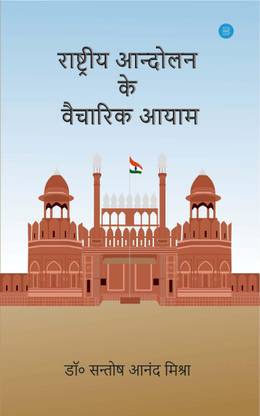Sumitranandan Pant (May 20, 1900 – December 28, 1977)
Birthplace and Early Influences
Sumitranandan Pant was born on May 20, 1900, in Kausani, a scenic hill town nestled in the lap of the Himalayas in present-day Uttarakhand. Shortly after his birth, his mother passed away, an event that left a deep impact on his tender mind and contributed to his introverted and sensitive personality.
The natural beauty of Kausani—with its snow-clad peaks, blue skies, lush forests, and blooming valleys—deeply stirred Pant’s soul and awakened in him a profound sensitivity to beauty. This deep connection with nature earned him the title "The Gentle Poet of Nature" in Hindi literature.
Education and Intellectual Development
Pant received his early education in Kausani and Almora, before moving to Allahabad University for higher studies. There, he came into contact with the ongoing nationalist movement and the vibrant literary culture of the time.
Allahabad was then a significant hub of Hindi literature. During this period, he changed his name from Gosain Dutt to Sumitranandan Pant. He was deeply influenced by English Romantic poets such as Wordsworth, Shelley, and Keats, as well as by the philosophical ideas of Rabindranath Tagore and Sri Aurobindo.
Contribution to the Chhayavaad Era
What is Chhayavaad?
Chhayavaad was a major literary movement in Hindi poetry characterized by introspection, imagination, aestheticism, and the exploration of inner emotional landscapes. Pant was one of its four stalwarts, alongside Jaishankar Prasad, Mahadevi Verma, and Suryakant Tripathi ‘Nirala’.
Key poetic works from this era:
- Pallav (1926) – A pinnacle of Chhayavaadi aestheticism
- Veena – Songs of nature’s beauty
- Gunjan – A fusion of dream-like imagination and philosophical reflection
- Yugvani – Deep self-analysis blended with awareness of the times
Example:
“Who echoes in the forests?
Who soars in the sky?
Who weeps with the wind,
And sleeps like a flower?”
These lines showcase a seamless unity between the soul and nature.
Social and Ideological Transformation
In the 1930s, Pant underwent a profound ideological shift. He evolved from being a poet of beauty and nature to a poet of human suffering, inequality, and revolutionary thought. Inspired by Marxism, Gandhism, and Aurobindo’s philosophy, he began grounding his poetry in social reality.
Major works from this phase:
- Gramya (1940) – Depiction of rural life’s sorrow and compassion
- Yugvani – The voice of the times and aspiration for reconstruction
- Roopabh – Consciousness of social awakening through beauty
- Gunjan (Second Edition) – Marked by his changed social perspective
Example:
"I desire that strength
Which can create a new world—
Not in heaven alone,
But here on this Earth!"
Philosophical and Spiritual Inclination
In his later years, Pant’s poetry moved toward spiritual and philosophical realms. Influenced by Aurobindo’s vision, the Upanishads, the Gita, and Vedanta, his works became vessels for self-realization and transcendental experiences.
Notable works from this phase:
- Chidambara – Awarded the Jnanpith Prize
- Lokayatan – Expressing the universality of the soul
- Swarnadhuli – A mystical interpretation of life and death
- Atima – Poetry as a medium for spiritual consciousness
Language Style and Poetic Beauty
Pant’s language was soft, rhythmic, and rich in Sanskrit vocabulary. His poetry introduced a melodious charm and profound imagery into Hindi literature.
Linguistic features:
- Use of rich imagery and figurative language
- Musicality in diction
- Varied metrical forms
- Artistic use of alliteration and simile
Example:
"You became the cloud in the sky,
The fragrance in the flowers,
The meter in my dreams,
The melody of my songs!"
Honors and Contributions
Major Awards:
- Jnanpith Award (1968) – For Chidambara
- Sahitya Akademi Award – For Kala Aur Budha Chand
- Padma Bhushan (1961)
- Vachaspati Award – From Hindi Sahitya Sammelan
- Honorary Degrees – From Allahabad University and others
National Contribution:
- Brought modern sensibility to Hindi poetry
- Elevated Hindi poetry through Chhayavaad to new aesthetic and emotional heights
- Inspired generations with love for nature, self-awareness, and social consciousness
Death and Legacy
On December 28, 1977, Pant left the mortal world, but his poetry remains eternally alive. His birthplace in Kausani has been preserved as the Pant Museum, housing rare manuscripts and memorabilia.
Conclusion
Sumitranandan Pant is a towering figure in Hindi literature. He gave Hindi poetry not just the beauty of language and meter, but also the depth of the soul. His verses embody nature, love, pain, thought, and spiritual insight. He is a true creator of beauty and consciousness.
His immortal line defines his poetic vision:
"Worship of beauty is the true pursuit of truth."












0 Comments
Thank you